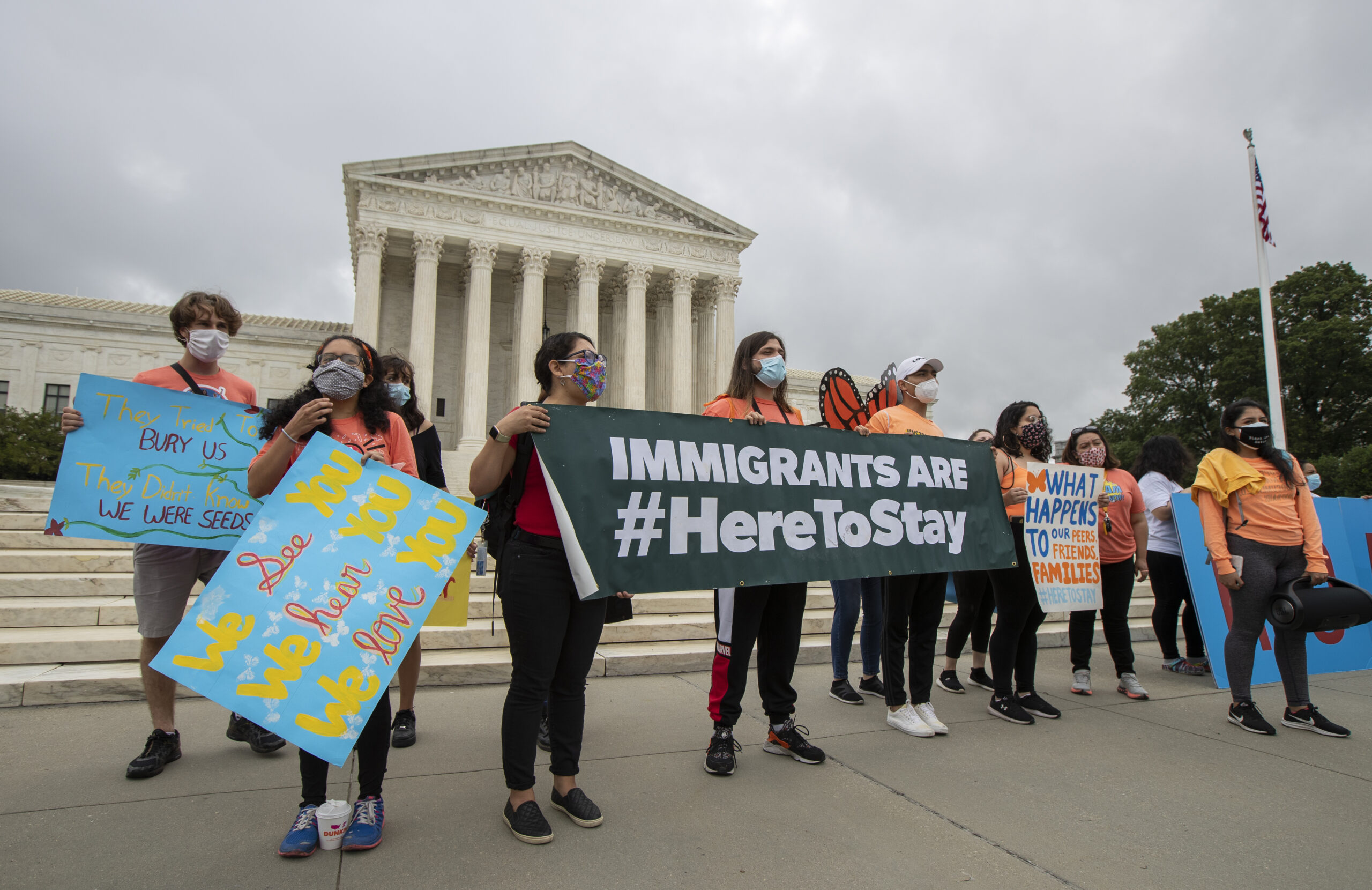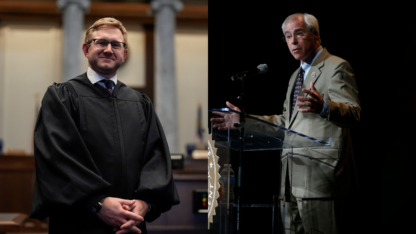Atlanta Immigration Experts Weigh In On DACA Decision As Feds Threaten To Fight SCOTUS Ruling

Deferred Action for Childhood Arrivals students celebrate in front of the U.S. Supreme Court last week after the court rejected President Donald Trump’s effort to end legal protections for young immigrants.
Manuel Balce Ceneta / Associated Press
It’s been nearly a week since the U.S. Supreme Court blocked the Trump administration’s efforts to dismantle Deferred Action for Childhood Arrivals, or DACA. Created under former President Barack Obama, DACA protects approximately 700,000 undocumented DREAMers from deportation and provides them with renewable work permits to find legal employment every two years.
But the ruling still leaves those who were brought to the United States as children with a staggering amount of uncertainty.
DACA is a temporary solution, what activists have called a Band-Aid on a broken immigration system that leaves no clear pathway to citizenship.
More than 20,000 DACA recipients live in Georgia as of March 2020, with 15,000 in the metro Atlanta area, according to U.S. Citizenship and Immigration Services (USCIS) data. Based on estimates from the Migration Policy Institute, the number of people who could qualify for DACA statewide, citing criteria outlined at the program’s launch in 2012, is more than double that, at 44,000.
Aixa Pascual, managing director of advocacy for the nonprofit Atlanta Latin American Association, said those who are trying to offer sound advice to immigrant communities also have many unanswered questions.
Since 2017, USCIS was not accepting new applications. In light of the ruling, federal officials should start to accept those applying to DACA for the first time, and advance parole applications from DACA recipients. But Pascual told “Morning Edition” host Lisa Rayam that the Trump administration could still try to act against the ruling.
“I think it’s a decision that we were not expecting, it’s a very positive decision,” Pascual said.
“We still need to have some caution. What we really need is comprehensive immigration reform that would include a permanent solution for the DACA recipients.”
Chief Justice John Roberts wrote the deciding opinion after a narrow 5-4 vote.
A temporary victory for immigrant communities and civil rights activists, the fate of DACA has been in limbo since Trump took office and made rescinding the program a major focus of his campaign.
Last week, USCIS Deputy Director Joseph Edlow threatened the DACA program.
Edlow issued a bitter statement on the SCOTUS decision, writing that the court opinion has “no basis in law and merely delays the President’s lawful ability to end the illegal DACA amnesty program.”
Edlow ultimately accused DACA recipients of taking jobs that American citizens need now more than ever during the coronavirus pandemic. That sentiment disgusts Pascual.
“This is a population that they’re young, they’re working, they’re studying, they’re building communities, they’re paying taxes, and they’re embedded into our society,” Pascual said.
“They are integral to who we are as Georgians, as Atlantans.”
Santiago Marquez, president of the state’s Hispanic Chamber of Commerce, told WABE that Georgia is unlike Texas, Florida, California and New York — states where Hispanic and Latino communities have lived for generations.
“Georgia is now turning the corner on the first generation,” Marquez said.
He said that dynamic means most of the businesses registered under the Georgia chamber are owned by foreign-born, first-generation residents.
Even though DACA’s impact reaches far beyond the Hispanic and Latino community, the Top 5 countries with the most active DACA recipients in the U.S. are Mexico, El Salvador, Guatemala, Honduras and Peru, according to USCIS. However, approximately 6,000 were born in South Korea, and many also emigrated from the Philippines, India and Jamaica.








